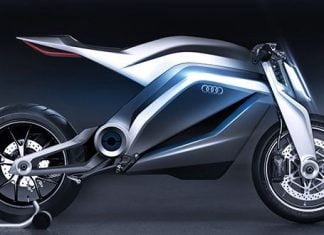When it comes time to dispose of an old vehicle, knowing how to accurately assess its value is crucial. The price of a junk car is influenced by a myriad of factors, from market conditions to the car’s physical state. Here’s a detailed guide on determining the value of your junk vehicle, ensuring you get the best possible deal.
Legal Paperwork
Complete and proper documentation can streamline the selling process and potentially increase the value of your junk car. Having a clear title, service records, and other relevant documents ready can significantly enhance the credibility of the car’s condition, making it easier for the buyer to process the purchase and offering peace of mind that can translate into a better price.
Despite the above, you should also know that you can get rid of your old vehicle without ownership documents. You can find out how to sell junk car without title on website that offers that offer qualified, reliable information.
Scrap Metal Prices
The scrap metal market is highly volatile, with prices fluctuating due to global demand, economic conditions, and supply issues. The primary metals found in cars—steel and aluminum—often dictate a vehicle’s base scrap value. For example, heavier vehicles, which contain more metal, tend to have higher scrap values. Current market trends indicate that scrap metal prices can range from $145 to $195 per ton, depending on these factors.
To get a ballpark figure for your car, calculate the total weight of the vehicle and multiply it by the current price per ton. Keep in mind, that prices can vary locally and are subject to change based on international metal markets.
Vehicle Condition
The state of your vehicle significantly impacts its value. A car that’s still operable or has minimal damage will generally fetch a higher price than one that’s completely non-functional. Key components, such as the engine, transmission, and catalytic converter, are particularly valuable. Even if the car itself can no longer be driven, these parts can be sold separately, often for a good price.
Additionally, the aesthetic condition of the vehicle, such as the interior and exterior, can affect its valuation. Cars with less body damage and more intact parts are more appealing to buyers who are either collectors or are looking to refurbish the vehicle for parts.
Make and Model
Some car models are more in demand in the secondary market due to their durability, reliability, or the high cost of their new parts. For instance, models that are commonly used in fleets (like certain sedans or SUVs) may have a higher demand for spare parts. Conversely, rare or limited-edition models might be valuable to collectors or enthusiasts looking for specific components unique to those models.
Car Age and Rarity
Newer cars generally provide more value, especially if parts are in good condition and can be reused. However, vintage cars or those with historical significance can also be quite valuable. These vehicles might attract buyers from niche markets who are interested in restoration or collecting specific classic models.
Location
The geographical location of a car can influence its scrap value. Proximity to scrap yards or salvage markets can reduce transportation costs and thus increase the value you receive. Additionally, the popularity of certain car models in your area can affect their worth. For example, a vehicle that is more common in rural areas might have less value in urban regions where different models predominate.
Market Demand
Demand fluctuates not just for entire cars but also for individual parts. High-demand items such as newer electronics, tires, and specialty items like hybrid car batteries can significantly increase the overall value of a junk car. Research local and online markets to see which parts of your vehicle are in high demand.
Steps to Determine Your Car’s Value
To obtain an accurate estimate of your junk car’s value you have to take a few steps. Here, they are:
- Use Online Calculators: Many websites offer scrap car value calculators that can provide a rough estimate based on your car’s make, model, year, and current metal prices. Inputting this information into the calculator will give you a ballpark figure based on the latest data.
- Consult with Professionals or Local Junkyards: Professionals in the field have the expertise to assess the condition of your car more accurately and provide a valuation that reflects local market conditions.
- Check Market Listings for Similar Vehicles: Reviewing online listings for similar junk cars can offer insights into the going rates. This research can help you understand what buyers are willing to pay for cars in similar conditions or with similar features in your area.
Wrapping Up
Valuing a junk car requires a detailed understanding of both the vehicle itself and the broader market. By carefully considering the factors outlined above, you can ensure that you receive the best possible offer for your car, turning what might seem like a worthless heap into valuable capital. Remember, the more you know about your vehicle and its potential worth, the better positioned you are to negotiate effectively.



















